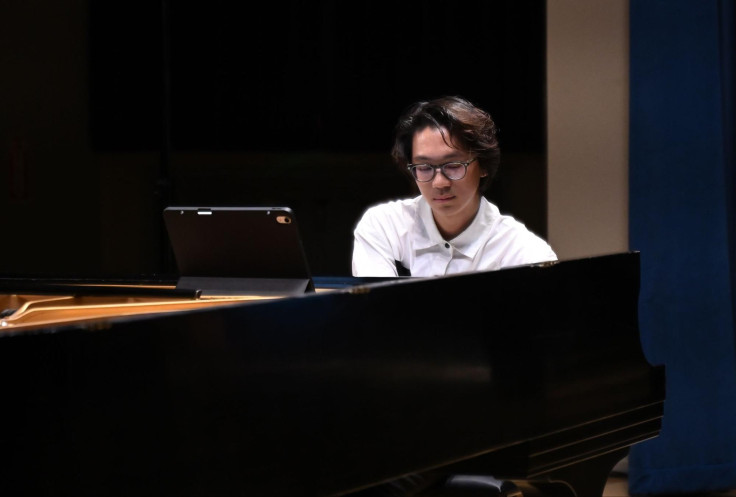Chi Wei Lo: Bringing Contemporary Music To Life With Passionate Performances
Chi Wei Lo is taking the less-taken path by prioritising works by living composers

In 2019, the autumn season brought foliage in the form of amber-hued leaves and elegant classical music. During that time, Boston's Jordan Hall resonated with an electrifying performance that would profoundly impact the classical music world.
Chi Wei Lo, a pianist known for his deep commitment to contemporary works, took the stage to perform "Movement for Piano" by Tyshawn Sorey. This composition fuses classical traditions with modern sensibilities. Chi Wei Lo's commitment to performing contemporary works—especially those by living composers—makes ripples for the genre to remain a vibrant, living art form that speaks to today's cultural and social realities.
Celebrating The Present: Amplifying Contemporary Voices
At a time when much of classical music leans heavily on historical repertoire, Chi Wei Lo is taking the less-taken path by prioritising works by living composers. He aims to give contemporary music a prominent place in concert halls and engage audiences with compositions that reflect today's world. Lo's performances are where classical techniques meet modern expressions of sound, making a move to celebrate the present and not just the past.
"Music must evolve, just like everything else," says Lo. "The works of living composers offer us a way to reflect on our current cultural circumstances while continuing to honour the foundation that classical music has built over centuries."
Lo's "Movement for Piano" performance by Tyshawn Sorey attests to this philosophy. With its sparse yet intricate layers, Sorey's composition challenges the confines of classical form while evoking deep emotional resonance. Through Lo's interpretation, the piece invited the audience into a reflective space that felt both contemporary and timeless.
His collaboration with Tyshawn Sorey took the art of performance to unprecedented heights. Just a day before their scheduled concert, Sorey approached Lo with an ambitious vision, proposing daring modifications to his original composition. He requested a reshuffling of musical sections and the addition of repeats and, most notably, invited Lo to improvise over the piece's structure—an exceedingly rare demand in classical music, where pianists traditionally adhere closely to the score.
Such challenges would prove overwhelming for many, but Lo's exceptional adaptability and improvisational flair allowed him to exceed even Sorey's expectations. In a performance that blurred the lines between composer and performer, Lo's spontaneous additions and interpretive skill brought the piece to life in a way that profoundly impressed Sorey himself, who applauded Lo's rendition as a brilliant and singular interpretation of his work.
This extraordinary collaboration showcased Lo's technical mastery and dedication to expanding contemporary music's reach and deepening its emotional connection with audiences worldwide.
A New Repertoire For A New Generation
Chi Wei Lo's dedication to performing contemporary music is not just about personal artistic choices—it also speaks to the new direction that classical music is taking.
By celebrating the works of composers like Tyshawn Sorey, Lo is expanding the canon of classical repertoire to include compositions that address current social, political, and cultural issues. This is crucial in making classical music relevant to younger generations and more reflective of the world around us.
"Classical music is not static," Lo explains. "It has to grow and adapt. We honour tradition and push the art form forward by performing contemporary works. We are giving audiences something fresh, something that speaks to today."
This emphasis on living composers often features music that engages with themes like identity, belonging, and cultural exchange—topics that resonate with the current social climate. Lo ensures that classical music remains a dynamic part of the cultural conversation rather than a relic of the past.
Crafting a Global Musical Legacy
Chi Wei Lo has been recognised throughout his career for his performances and contributions to the classical music community, from winning prestigious awards like the A, from the Ramon Rivera Piano Competition in 2009 to being a guest artist at the Lancaster International Piano Festival in 2023 and 2024.
His sold-out tours in Taiwan, including the "Seven Deadly Sins" concert in 2022, showcased his ability to captivate audiences globally. His participation in charity events further amplifies his commitment to using music as a platform for meaningful cultural exchange.
2018, during his "Declaration of Aesthetics" concert tour, Lo was invited to collaborate with Kaohsiung Metro's 10th Anniversary celebration, performing a charity concert in Taiwan's iconic Dome of Light at Formosa Boulevard Station. The event marked the release of a custom edition Metro Pass in Lo's honour, with proceeds supporting local causes.
Chi Wei Lo's dedication to giving back also shone through earlier in his career when he performed as a soloist with the Longwood Symphony Orchestra at Boston's Esplanade in 2006—a performance presented by the Foundation for Chinese Performing Arts, known for blending music and philanthropy.
Soundscapes Reimagined: The Pulse of Modern Composition
As Chi Wei Lo continues to perform across prestigious stages in the U.S. and abroad, his influence on the classical music world is apparent. His approach to programming and his dedication to living composers are helping to reimagine the genre's future. Lo ensures that modern compositions remain relevant, engaging, and deeply connected to the cultural and social elements of the 21st century.
"There is so much more to be done," Lo says. "Music is a reflection of who we are, and it should reflect the diversity and complexity of the world we live in now." Indeed, Chi Wei Lo is a bold voice for its future in an art form often defined by its rich past.
© Copyright IBTimes 2025. All rights reserved.




















